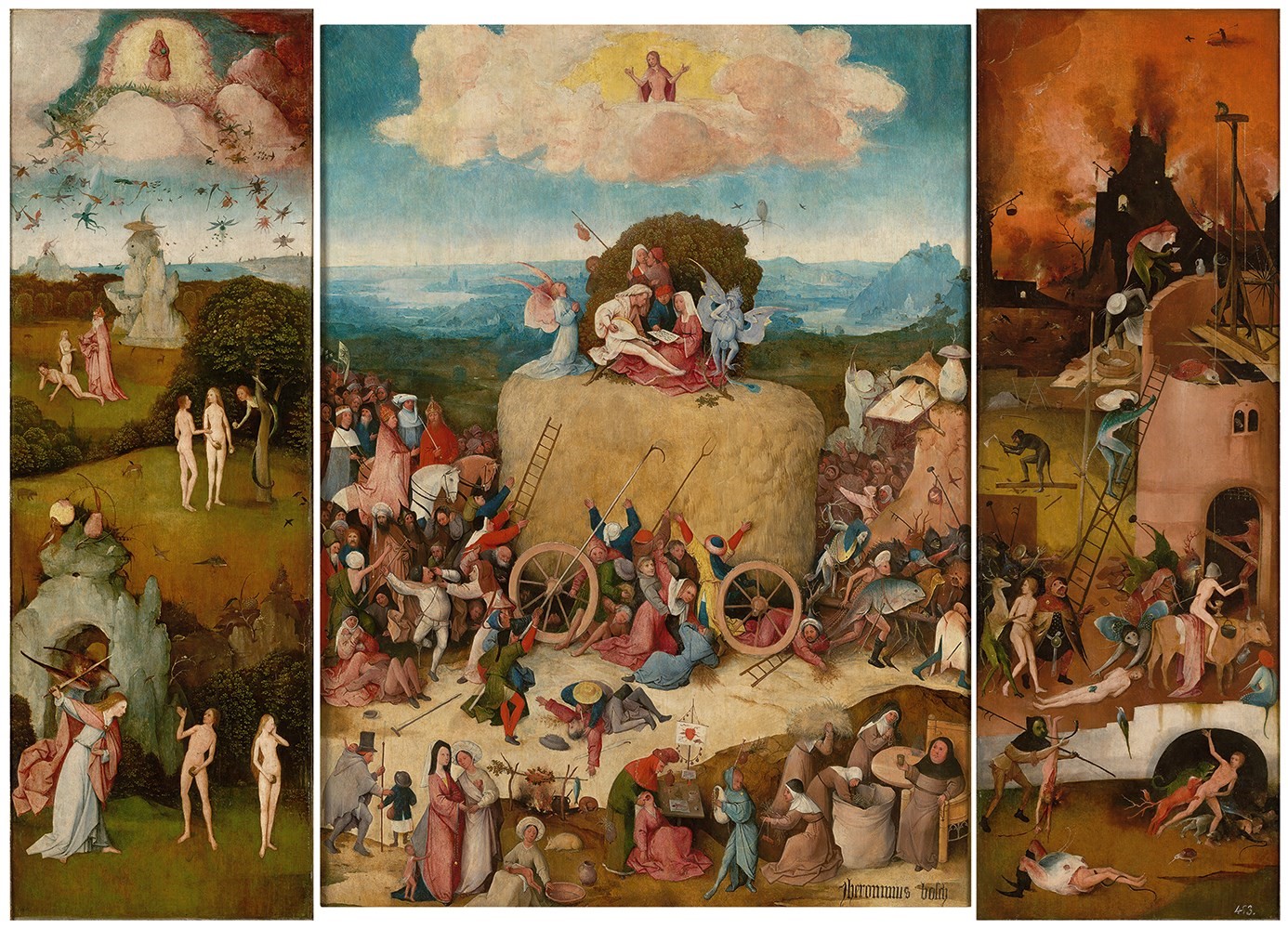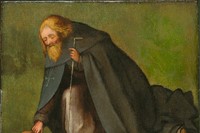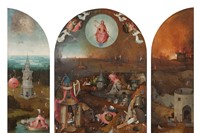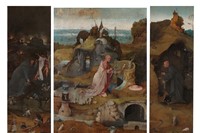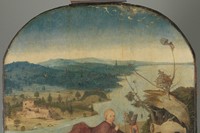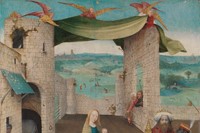Zoom in on any one of the busy scenes that populate the paintings of celebrated Netherlandish artist Hieronymus Bosch (c. 1450-1516) and you are likely to encounter the most extraordinary array of creatures, architecture and human interactions you will ever see within a ten-centimetre radius. From a human-headed, egg-tree hybrid filled with miniature diners to a pair of knife-bearing ears and a man inserting floral bouquets into another's (willingly offered) backside, Bosch's endless creativity has the power to ignite even the most dormant imagination, and continues to inspire new generations of creatives 500 years after his death (think Raf Simons' Christian Dior Haute Couture Collection for A/W15).
In celebration of this landmark anniversary, Het Noordbrabants Museum, in Bosch's native city, Den Bosch, has compiled an unprecedented exhibition, reuniting the vast majority of his works from galleries and private collections around the globe. This has taken over nine years to achieve, and innumerable hours' worth of research and restoration by a whole host of experts. The result is a breathtaking display, offering the most comprehensive overview of the enigmatic artist and his sublimely surreal and symbolic oeuvre to date. Here, as the hugely acclaimed show prepares to relocate to the Prado in Madrid, we unearth ten little-known facts about the great artist himself.
1. His real name was Jheronimus van Aken, but he signed a number of his paintings Jheronimus Bosch, the latter name referring to his hometown Den Bosch ('the forest').
2. His grandfather, Jan van Aken, was a painter, as was his father and three of his four uncles. Indeed, it is believed that it was one of his uncles who taught him his craft.
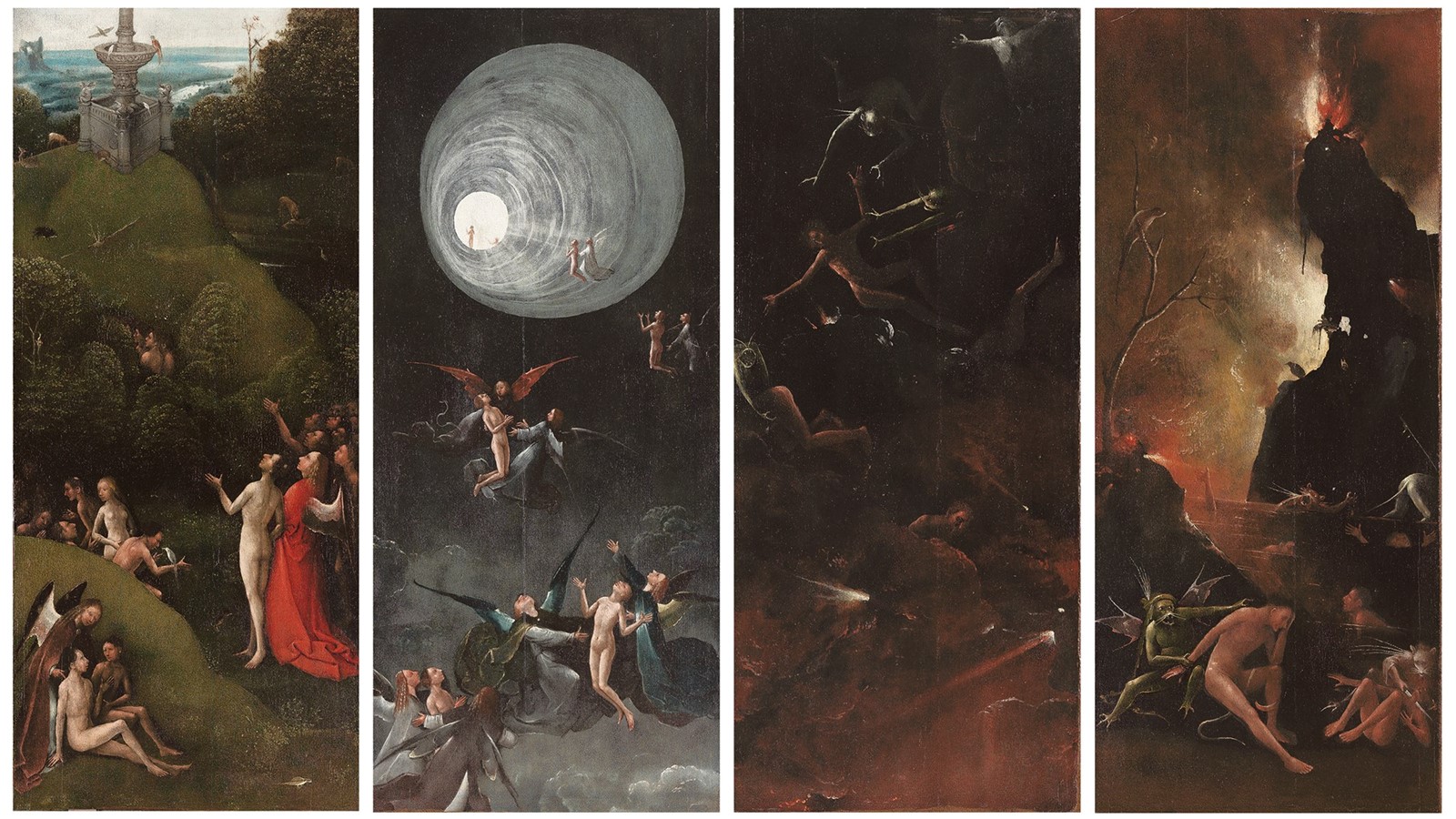
3. In 1463, Den Bosch was struck by a disastrous fire which destroyed 4,000 houses in the small town. The 13-year-old Bosch would presumably have witnessed this, perhaps a contributing factor to his multiple (and masterful) depictions of burning buildings within the backgrounds of a number of his paintings.
4. That Bosch's paintings are rife with potent symbolism is unquestionable, but the meaning of his works and their bizarre inhabitants has long been the subject of intense scrutiny and conflicting interpretation. This is exacerbated by the fact that he left behind no writings or diaries as a means of understanding his artistic intentions.
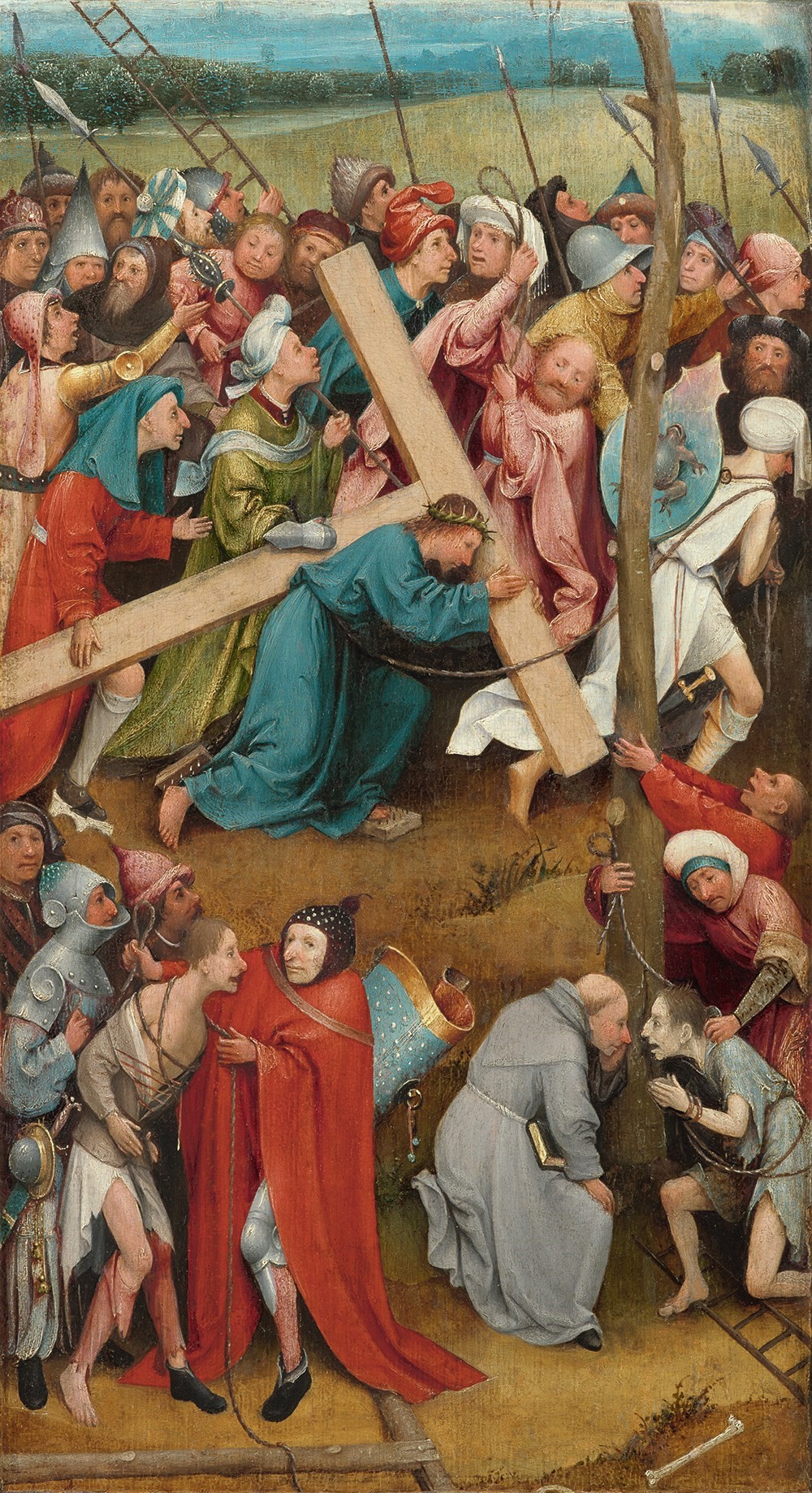
5. While his strange and wildly imaginative creations led some 20th-century art historians to view his work in a heretical light, Bosch was, in fact, a devout Christian, whose ideas were largely founded on the fearful beliefs and superstitions that dominated the western medieval world. In 1488, he was inducted into the Brotherhood of Our Lady, a prestigious, arch-conservative religious group comprising around 40 influential Den Bosch citizens, and seven thousand 'outer-members' from around Europe.
6. That's not to say his art wasn't radical; a brief glance at the work of Bosch's contemporaries shows his work to be utterly unique, his representations of great themes such as temptation, sin and final judgement depicted in an entirely idiosyncratic manner. His drawings – 19 of which are presented in the show – offer a fascinating insight into the inner-working of his mind, in their plotting of the visual manifestation of the monsters that dominated his nightmares. He treated drawing as a medium in its own right, rather than simply a means of prepping for a painting – another quality that set him apart from the large majority of artists at the time.
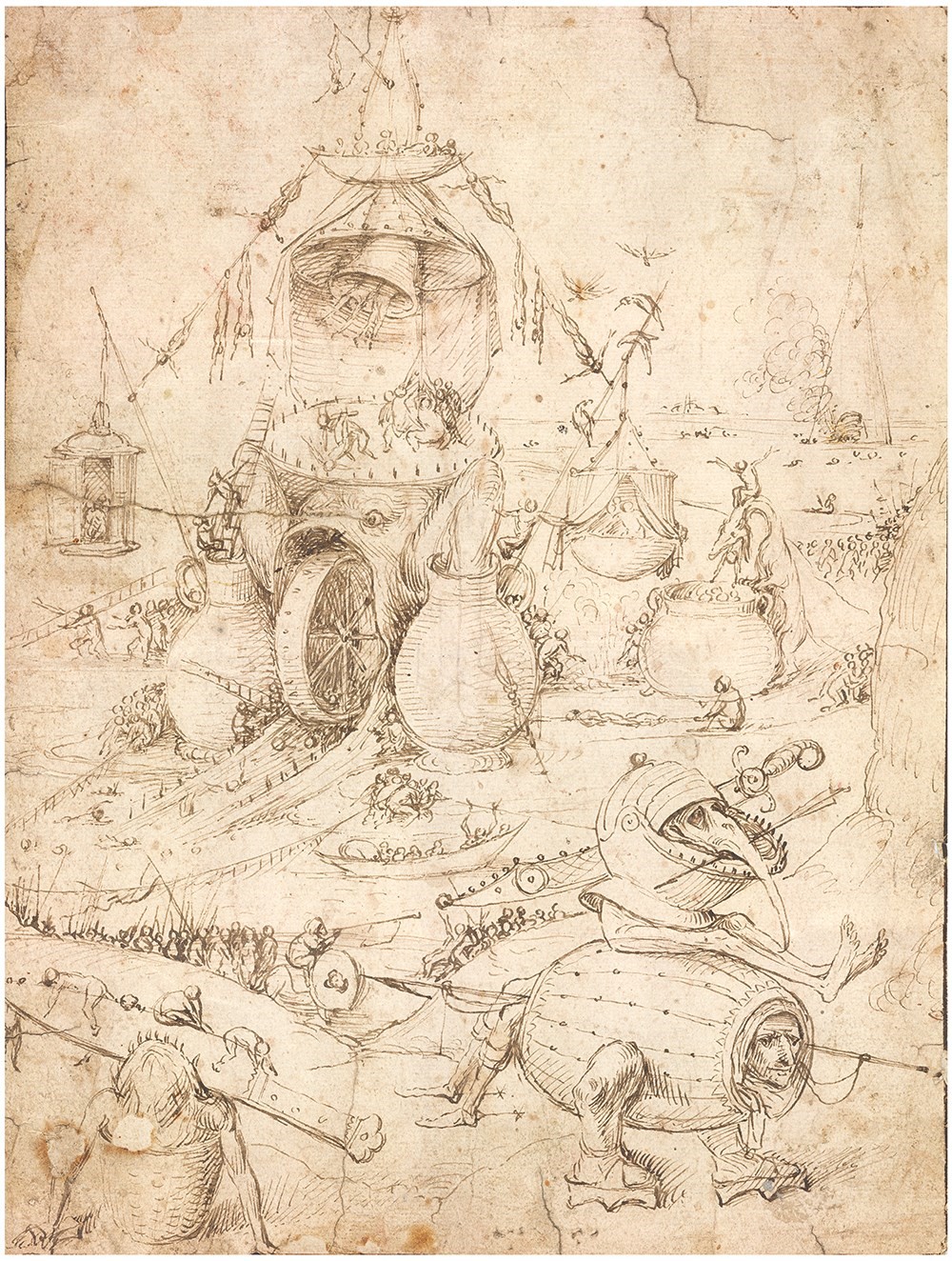
7. Bosch was also highly original in his application of paint; while the majority of late 15th and early 16th-century Netherlandish painters strove for utmost perfection in their renderings in attempt to convey them as more nearly divine creations, Bosch often employed a more sketchy approach, and frequently applied his paint thickly, giving his works a rougher surface than most.
8. In around 1481, Bosch married Aleid van de Meervenne, the daughter of a pharmacist. It is likely that his in-laws' profession inspired the artist in his inclusion of weird and whimsical interpretations of distilling and boiling apparatus in his work (think the glass cylinder, sphere, and beaker-like shapes in the central panel of The Garden of Earthly Delights.)
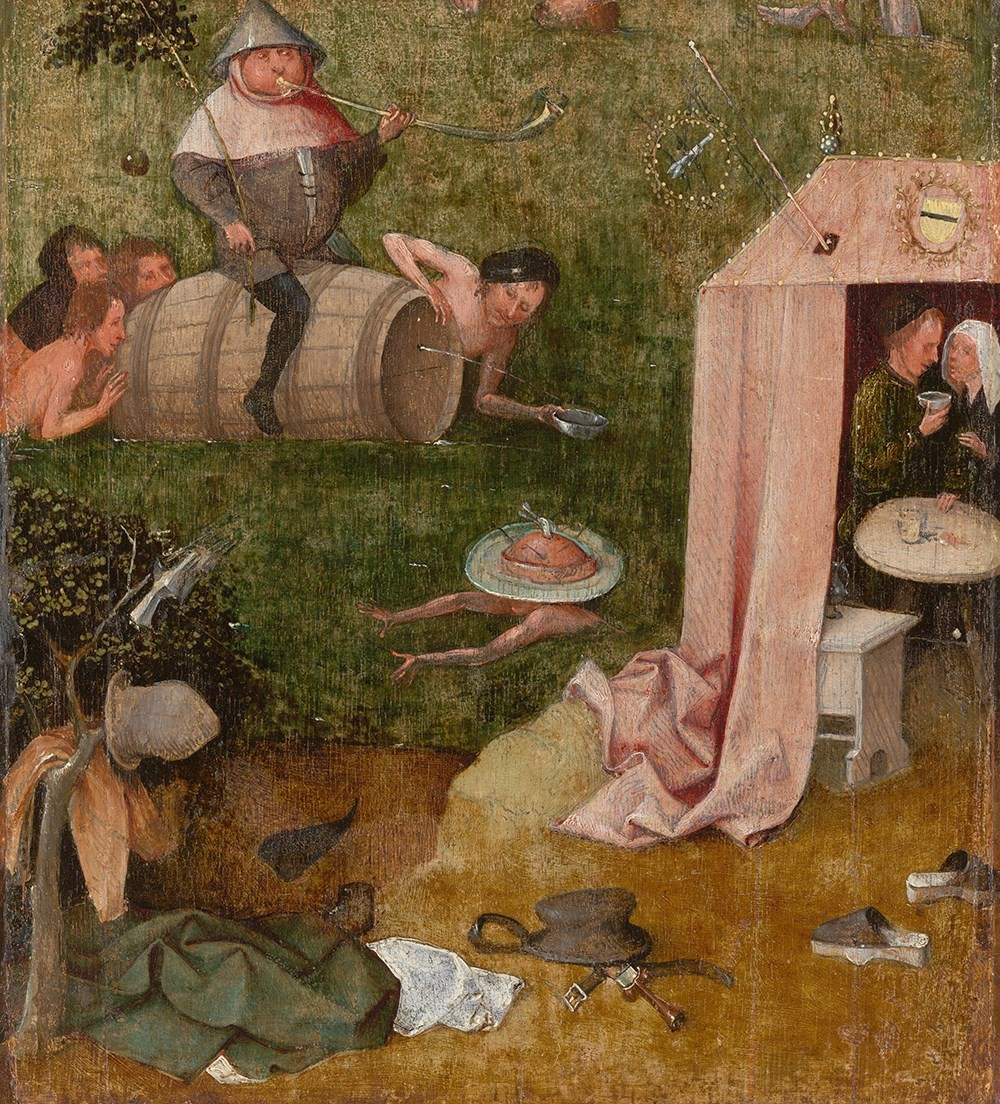
9. Bosch's most eminent commission on record came from Philip the Handsome, Duke of Burgundy, in 1504. It was an altarpiece, standing at nine feet high and 11 feet wide, and depicting the Last Judgment, heaven and hell in three separate scenes. The painting has since been lost but the patronage of such an important figure demonstrates Bosch's reputation as a master of his craft, as well as a man of great religious standing.
10. Indeed, when Bosch died in 1516 at the age of 66 or thereabouts, the official notices of his death described him as a "very famous painter" and his reputation continued to burn brightly in the years that followed, with many young artists directly referencing hs work. Most notable among his followers was Pieter Bruegel the Elder, whose early work closely emulates Bosch's style. By the 17th century, however, Bosch largely fell out of favour, his work widely disregarded by scholars and art lovers alike until the 20th century.
Bosch: The 5th Centenary Exhibition will run from May 31 - September 11, 2016 at Musee del Prado, Madrid.
